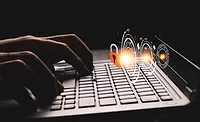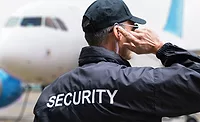Is Your Security Guard Good Enough? Why Many Protection Agents Need More Training
What makes a quality security guard? What skills and traits embody someone that you would want to entrust with your life or the lives of your family? Most fail to realize that so much more goes into the making of a true professional protection agent than just an intimidating look and a gun. There is certainly more to it than the minimum standards required for licensure.
In every state, the requirements to be licensed as a security guard fall short. In Texas, for example, you only need to complete a 48-hour class to be an armed security guard. To become a licensed Personal Protection Officer only requires an additional 16 hours of training, all of which is conducted in a classroom. In under two weeks, you can go from never having seen a gun to holding a State license saying that you are qualified to protect a client and everything that entails. Unfortunately, this training only serves as an introduction to a few broad topics without ever teaching, reinforcing, or testing real skills. I believe there are eight critical skills that every protection professional should possess.
People Skills
Above all else, the job of a protection officer is that of a concierge. An officer must be able to communicate effectively with all types of clients and work with a client’s staff and other security professionals. An often overlooked skill that is absolutely mandatory for the successful agent is the ability to develop connections and relationships that enable them to perform their job to the highest level (being able to get their client that table in the crowded restaurant with no reservations, getting direct access to the tarmac, parking right by the front door, etc.)
Critical Thinking/Decision Making
A professional officer considers, anticipates, and plans for every possible scenario. And then when all those things fall apart, they can quickly think on their feet and decide on an appropriate course of action.
Observation Skills (Situational Awareness)
A security guard must be acutely aware of their environment and be able to understand what they are seeing in order to decide on an appropriate course of action, preferably before a negative event takes place. While this skill is refined through experience, the groundwork can and should be started in a classroom using case studies and videos of past events as well as scenario training.
Knowledge of the Law
An officer must have a firm understanding of what is permissible by law especially as it pertains to use of force and firearms.
Physical Fitness
Physical fitness is not only necessary to maintain the professional image of a security guard, but also to be able to stand for long periods of time, go without sleep, manage stress and be able to effectively defend a client should the need arise.
Self Defense Skills
Self-defense training must be ongoing for anyone in the protection industry. A quality training program will introduce and drill techniques for controlling or neutralizing an aggressor, but these techniques must be constantly practiced and maintained, or they are worthless.
Firearms Skills
State required firearms training is equivalent to a license-to-carry class for a citizen, as is the test that provides a passing score with poor shooting skills. It is not even remotely adequate in preparing a protection officer to use a firearm in a real-world scenario.
Experience Under Stress
Training without stress inducing, reality-based training means nothing. The first time that a security guard faces a stressful situation should not be during a real operation. A successful training program subjects the trainee to stressful, real-world scenarios in a controlled environment.
This is certainly not a comprehensive list. There are many other useful skills and traits for protection officers, and you cannot put a value on real experience. But these eight are necessary for those seeking to hire a professional protector. There is a well-known saying when it comes to training; “We don’t rise to the level of our expectations; we fall to the level of our training”.
Many go through the basic State requirements. They talk the talk and look the part and may even have some minor success in the industry when everything goes right. But inevitably, in this industry, things will go wrong. When stress and fear set in, an agent will do what they are trained to do. If that training is absent or lacking, costly mistakes will be made and that is not acceptable.
Looking for a reprint of this article?
From high-res PDFs to custom plaques, order your copy today!








